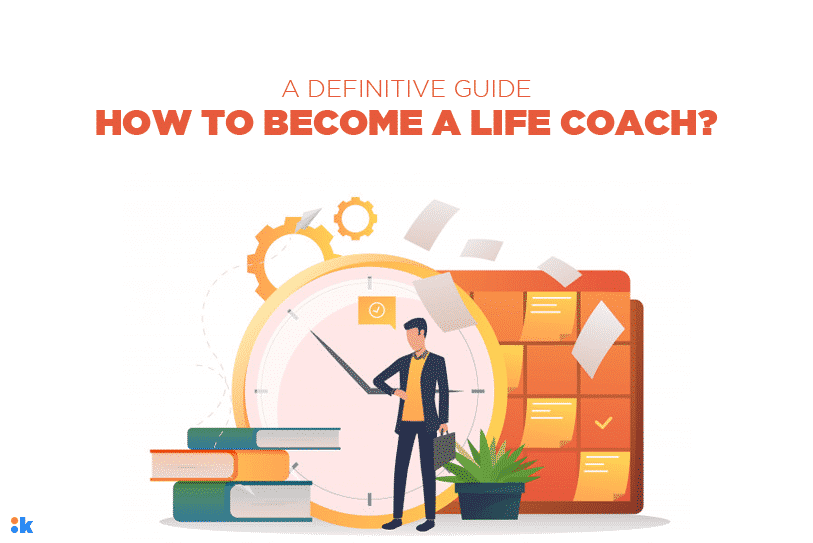Life Coaching: How to Become a Life Coach – A Definitive Guide
Table of Content
- Introduction
- What is Life Coaching?
- 3 Reasons to Become a Life Coach
- What does a Life Coach do?
- Best Cities for Life Coaches to Start Practicing
- How to Become a Life Coach?
- Conclusion
According to statistics, coaching as an industry is expected to grow to be a $1.38bn market by 2022. Although coaching may still not be considered fitting for some, it sure is on the path to getting there. As a result, the demand for coaches in all sectors has increased as well with a similar impact on life coaches.
In this definitive guide, we will go through the entire process of becoming a life coach, step by step.
What is Life Coaching?
Life coaching is a widely misunderstood term. Often taken for counseling, or therapy, life coaching goes a long way beyond either of the two. Life coaching is a coaching process focusing on multiple areas of life, from personal objectives to business goals.
In the process, clients opting for life coaching understand their current standing, hurdles, and methods of overcoming each.
A life coach takes a holistic approach in helping you understand how you can transform and succeed in any area of life. As a result, you walk away with confidence in making the right decisions at the right time, focused on your goals.
Over the past decade, life coaching has become a common career path for many as they need for life coaches increases.
And if you have decided to become a life coach, here are three reasons to validate your decision.
3 Reasons to Become a Life Coach
1. You are a people’s person
As a coach, one of the most critical aspects of your career would be to help people. For life coaching, being a people’s person is almost a pre-requisite. If helping others comes naturally to you, you will overcome the primary requirement of being a life coach.
Although, you can still become a life coach if you are not very sociable, however, you may have a lot to overcome in the beginning.
2. Great listener
When you are working as a life coach, you are working with people to resolve several concerns in their life. Since life coaching covers several aspects of one’s life and in order to help find solutions that work, it is important to listen.
Listening is critical to life coaching.
3. Extensive knowledge
As a life coach, you are likely to deal with varying concerns of clients. It could be related to their personal relationships in life, finances, or mindset. Having extensive knowledge of different verticals would help you not get caught by surprise.
This knowledge will help you approach your practice with more confidence and a greater ability to take on challenges.
If all of these matches you, you are likely to choose life coaching as a career. With this out of the way, we can move into understanding what a life coach really does.
What does a Life Coach do?
As we discussed above, a life coach is someone who takes a holistic approach to solve one’s biggest challenges ranging from personal life to professional goals.
People aim to work with a life coach to help build and transform tomorrow, today.
For anyone who has big goals, and wishes to achieve more, whether already successful or not, is likely to opt for a life coach like yourself.
In the efforts to help people excel in life, life coaches observe, collect information, strategize and help implement constructive strategies.
As life coaching overlaps with other forms of coaching, you will work with clients on areas from business goals to weight loss goals.
Some areas, but not limited, you will work in as a life coach will be:
– Developing goals and achievable actions items
– Working with personal development skills and confidence
– Developing weight loss programs
– Helping construct a strong mindset towards life
– Helping develop a work-life balance
– Honing skills in workplaces specific to their industries
Best Cities for Life Coaches to Start Practicing
You may already live in a city where life coaching is in high demand. However, if you don’t, it would not change much. Over the past couple of years online coaching has taken shape, and today, it is convenient for life coaches to operate in other cities, without leaving their own. But we will get to that later.
When it comes to life coaching, here are five best cities for life coaches.
1. Atlanta: Based on the cost of living, and Gallup-Healthways Well-Being Index, Atlanta is the best place for life coaches to start their practice. With the median price of $199,000 and $1,275 for rent, Atlanta sure can provide a comfortable life.

2. Pittsburgh: With the average price of a session being $157.32 according to Thumbstack, life coaching in Pittsburgh is a great career choice.
3. Phoenix: In Phoenix, life coaches need to conduct 6.2 sessions on average to pay the median rent of $1,207.
4. Seattle: According to the Gallup-Healthways Well-Being Index, Seattle has the lowest score, which gives way to great opportunities for life coaches to establish their practices.
5. Washington D.C.: As the political capital, you can find a massive demand for life coaches in Washington D.C. More so, life coaches in Washington D.C. also get paid the most. On average, a life coach makes about $207.52 per session.
It is possible that you are wondering how not living in any of these cities will impact you. Life coaching is a national phenomenon. And today, it is easier than ever to coach clients in other cities with the rise of online or virtual coaching and online coaching marketplaces.
So, with all the basics out of the way, let’s talk about how you can become a life coach professionally, and get your first client!
How to Become a Life Coach? A Step by Step Guide
Step 1: Choose Your Niche
Life coaching is a broad space to operate in. As we discussed earlier, in life coaching you could be dealing with business, mindset, relationships, and even health.
Given how life coaching is transforming into a booming industry, it is likely for it to become saturated even faster. Picking a niche assists in marketing your services better and catering to a concentrated audience as opposed to trying to work with everyone.
Here are some niches, but not limited to, you can operate in as a life coach:

Step 2: Training Programs
As a life coach, you will face several challenging situations that can be personal, and professional. Clients often come to life coaching with specific expectations and are likely to implement your strategies and adhere to your advice.
Like any other profession, training programs help life coaches get a head start in understanding the kind of situations they can find themselves in.
These training programs are helpful when you are in such a life-changing industry.
Step 3: Life Coaching Certifications
Certifications help life coaches build the credibility they need in the market. Most clients are likely to work with coaches who have the right life coaching certification. So, if you are unable to decide which certification you should opt for, here are some options you can look into.

Coach Training Alliance (CTA): The CTA program is 100% online and lasts 6 months. For $3,347 this certification helps you with ‘everything life coaching’ along with workshops. The best part about CTA is that it guarantees two paying clients prior to graduating, which help you cover some of the initial costs.
Institute for Professional Excellence in Coaching (iPEC): Known as one of the most comprehensive coaching programs, the iPEC certification lasts 7 to 9 months, covering 400 hours of training, and costing $11,950. The training is available both online and in-person, which makes it all the better.
CoachU: Founded by the founder of coaching itself, Thomas Leonard, CoachU is considered to be the first coach training institutes. Depending on your choice, you can get your training in-person or online. With various programs and certifications, you can complete your training between 6 to 15 months, for $3,195 to $9,290.
Step 4: Set Up Your Practice
Once you have overcome all the initial barriers and obtained your certifications, you are all set to legally start your own company as a life coach. Depending on the country you live in, laws may differ, so, it is advised that you work with an expert in the field to set it up.
Setting up your company will let you strive further into the industry as a brand and will help you manage your finances too. You may not necessarily have to set up a company, but it is always recommended that you do.
Step 5: Start Marketing & Practicing
We admit that following these steps may not guarantee clients instantly, but that is when you start marketing your services. When it comes to marketing your services, there are several marketing strategies for coaches you can implement to get the word out.
Conclusion
One of the leading coaching trends in 2020 is virtual coaching. Over the past couple of years, coaches have found convenience in using technology and taken their practice purely online.
As a result, multiple online coaching platforms have hit the market to help coaches with managing and maintaining their practice in the form of a software.
Koachee on the other hand created an online coaching marketplace connecting clients with coaches, all under one roof. If you are a new coach, looking to get exposure in the market, you can sign up for free, and meet potential clients.
Life coaching is a challenging yet fulfilling career. The satisfaction of helping transform lives cannot be matched. We wish you the best on your journey, and hope to continue helping you achieve big goals!






